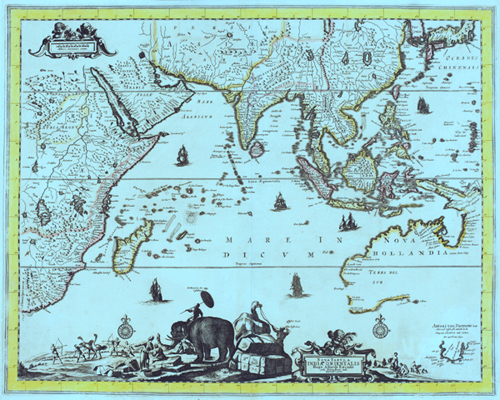and you still might get run over.......
The killer we know too well: roads
Traffic accidents kill more people a year than tuberculosis and malaria. It's time for a global action plan
Imagine a global humanitarian disaster that kills on the scale of malaria or tuberculosis. A public health catastrophe taking the lives of 1.2 million people each year and the livelihoods of tens of millions more. While our immediate attention is drawn to the threat of global pandemic, a worldwide public health crisis that already kills thousands each week goes by almost unnoticed.
Road crashes are by no means the hot public health and development issue of the day, yet, according to a report out this week, they are, right now, a crippling burden on health systems across low and middle-income countries. Our governments are mobilising to give us the best chance of countering a possible flu pandemic and rightly so. If only a fraction of this attention was paid to the daily carnage on our roads. Unlike flu, we can eradicate threat and danger on the roads. We already have the tried and tested simple preventative measures which would have saved the thousands who have already died on the roads over the past week, but we seem content to let the casualties mount.
There are few unknowns with road crashes; the causes are simple to identify: badly designed roads and unsafe vehicles, trucks, buses and cars mixing with pedestrians, lack of seat belt- or helmet-wearing and enforcement, a fatalistic attitude to risk and inadequate or non-existent driver training.
The new report by the Commission for Global Road Safety details how we can save millions of lives. In essence, we need the political will to act and effectively focused resources. Unfortunately this hidden epidemic is so ignored, neglected and under-funded that global road deaths are set to double by 2030.
This should be enough reason to act, but few are facing up to the problem. Particularly given a financial climate where high-income countries may look to review their entire development agendas, why should road safety be of concern at all?
There are many reasons. We will continue to invest millions in the economic development of low-income countries. Our overseas aid is devoted to improving life chances for education, for health. Dangerous roads damage this effort, killing the young and productive, disrupting commerce and trade. They impose a high burden on under-funded health services. They make the daily journey to school a high-speed life or death lottery for millions of children. Worse, many of these dangerous roads are being built with our taxes. Roads are being funded by our governments' international development agencies, the World Bank and EU with one objective; to speed traffic and increase trade flows, but without sufficient attention to road safety safeguards or the needs and views of local communities.
So what needs to happen? The commission, which I chair, has already persuaded the UN to support a first ever global ministerial conference on road safety to be held in November. Now we are calling on the conference in Moscow to support, and the United Nations to adopt, aDecade of Action for Road Safety. The Decade of Action should be launched next year and should have as its goal a reduction of 50% in the forecast level of road fatalities by 2020. Harvard researchers estimate that achieving this goal would mean saving five million lives, and preventing 50 million serious injuries, over the next 10 years. The economic value of these saved lives would represent some $3tn (£2tn).
The plan should include a $300m international action plan to catalyse traffic injury prevention and refocus national road safety policies and budgets. For an investment of $30m a year the leading donor nations and major public health philanthropies could transform the way road safety is understood and managed across the developing world.
National governments, and those with responsibility for road safety at regional and local level, should be encouraged to adopt ambitious strategies to improve and enforce road user behaviour. For example, ministers meeting in November could together commit to work for universal seat belt- and helmet-wearing by 2020. With high-level political support action like this, Moscow can be a genuine turning point, the fork in the road where we choose to take a new direction for road injury prevention.
Five million lives are at stake: five million people whose potential can be realised, and not wasted. Five million families who need never know the sudden shock and lifelong grief that comes from losing a loved one in a road crash.










+copy.jpg)






















































.jpg)



























 G
G







.jpg)
















No comments:
Post a Comment